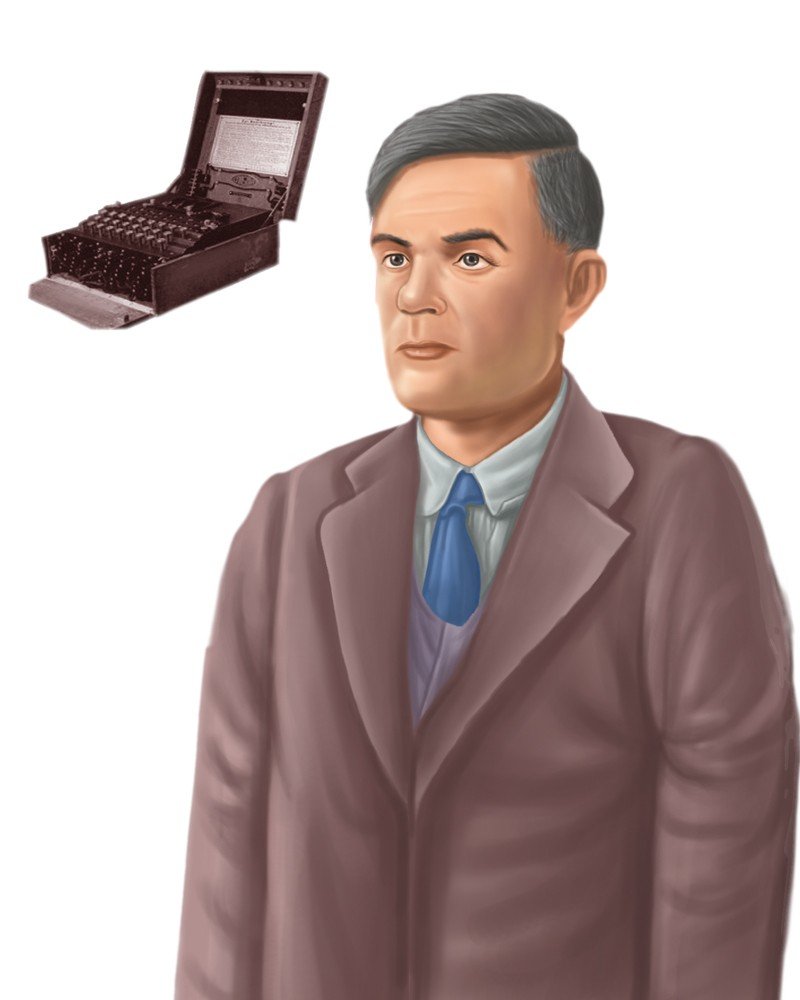Alan Turing (23 June, 1912–7 June, 1954) was a mathematician, logician, cryptanalyst and is considered as the pioneer of computer science. He introduced the concepts of algorithms and computation, paving the way for the modern digital computer. He is noted for the discovery of ‘Turing machine’, which was able to simulate the logic of any computer algorithm. Turing studied mathematics at King’s college in Cambridge where he received the Smith’s prize for his research in the field of probability and the Gaussian error function.
During the Second World War, Turing worked for Government Code and Cypher School (GCCS) where he was instrumental in decoding German codes by an electromechanical machine named ‘bombe’. After the war, Turing contributed in the designing of the first stored-program computer ACE. Later, he joined the Max Newman’s Computing Laboratory and assisted in the designing of the Manchester computers. Alan Turing is considered as the father of artificial intelligence. He computed the algorithm for testing artificial intelligence called the Turing Test. Alan Turing was elected fellow of the Royal Society in 1951.

